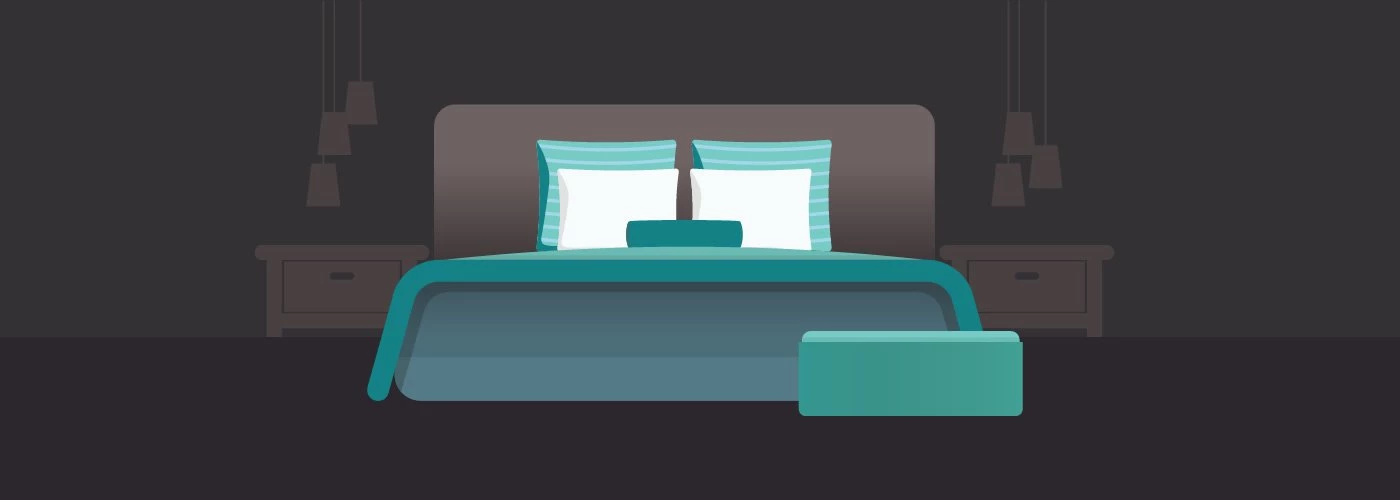As a young adult with cancer, Traci Owen is definitely someone you want in your corner. She is a registered nurse and has been a member of the team at Cancer Treatment Centers of America in Tulsa, Oklahoma, for the past 11 years. Owen has spent the last five years developing a sexual health program for CTCA.
“Sexuality is such a hot-button topic,” she says. “And our society and our cultures give us so many opinions about sexuality — and very few of those opinions are based in fact.” What you see are a lot of rules, and that sets young adults up for shame, guilt, embarrassment and self-consciousness about who they are as sexual beings.
Toss in breast cancer and there is a lot to overcome. But with the help of someone like Owen encouraging open communication, it can be done.
“We just don’t really have very many safe places to have conversations for education and for imagination and permission. Sex is very much in a box.”
Owen aims to take it out of that box and put it all on the table. Here she shares nine things you should know about sex, intimacy, and cancer.
Young Adults Have a Few Common Sexual Health Concerns
Early menopause after a breast cancer diagnosis can be jarring, and it can be hard for young adults to wrap their heads around because up until that point most have not struggled with desire. Owen tries to be proactive and educate patients about what’s ahead of them so that things like vaginal dryness and painful sex don’t come as a shock . And so they know that they have a safe space to work on it.
Body image is also a concern for many young survivors and thrivers, she says. And that can be especially challenging for them in the dating scene.
Single Young Adults Have Different Challenges Than Those with Partners
Cancer journeys are personal stories that not everyone needs or deserves to know. “In the first couple of dates, there's no need to subject yourself to that sensitivity,” Owen says. The date can quickly turn into a conversation about cancer rather than one about you. You are not your cancer. When it comes to dating after breast cancer, many young adults may choose to wait some time before discussing their cancer with potential partners.
For more short-term sexual relationships (aka hookups), young adults may want to tell their partners that they’ve had breast surgery, if they have scars or have had a mastectomy. What’s most important is doing whatever each person feels most comfortable with.
The Brain is the Most Important Sex Organ
Sexuality begins in the brain, and the brain is like an internet superhighway. We always have a lot of windows open on the browser, and if those windows are full of cancer-related content like pain, scars, breast surgery, chemotherapy, hair loss, nausea, inability to work and vaginal dryness, it doesn’t allow a lot of space for desire to grow.
Additionally, antidepressants, which some young adults with breast cancer may take, can affect sexual desire and one’s ability to reach orgasm.
Use “Body Mapping” To Relearn What Works For You
"Think of all the heavy messaging about self-touch. We can reach up and rub our shoulders if they’re hurting, rub our temples if they’re hurting, but if we touch ourselves in a way that is just about sensation, the message is that it crosses a line into something naughty and shameful"
Owen calls the technique she uses body mapping. This is something you can do at home. Start at the top of your head— massage it, gently stroke it, tickle it, feel the sensation—then slowly move down your body. The first time you try it, don’t touch your breasts, glutes or genitalia. Just start to notice where you like pressure or softness and what does or doesn’t feel good. The goal is to discover your erogenous zones. Do this several times before bringing in a partner to go through the process with you.
If you decide that you don’t want your breast area touched at all, let your partner know. Wear something you feel sexy in, which could also remind your partner of the no-fly zone. You can always revisit breast touch later if you begin to feel more comfortable with it.
Desire and arousal may be flipped for women who have experienced a hormone disruption. Before breast cancer treatment you may have experienced desire and so you sought arousal. However, a lot of times for postmenopausal or ovarian-suppressed women, that switches to needing to feel arousal before experiencing desire. If you’re not in pain or completely fatigued and your partner is putting some good moves on you, maintain some curiosity and patience. You might find that you have more desire as you become more aroused.
Pain May Be Holding Both You and Your Partner Back
A lot of survivors and thrivers experience pain with sex and never say a word about it to anyone, including their partners or doctors. Similarly, many partners carry a fear of hurting their survivors or thrivers during sex. Owen likes to remind patients and their partners that desire after cancer treatment will look different than it did before. This is a reflection of cancer and treatment—not the relationship.
It all goes back to communication. It’s rare for couples to have good communication around sex. Owen says:
“Most couples haven’t figured out good language for sexuality, and if you didn't know how to talk about sex when things were good, it’s really hard to talk about sex when things aren’t good.”
The first thing for partners to do is establish a commitment to each other to be open and honest — and not to sit in fear. Young adults with breast cancer have to be willing to let their partners know when they are in pain so that their partner can adjust what they are doing. “Not stop it, but adjust it,” Owen says with emphasis.
For example, if a woman has bone mets, frequent position changes during sex may have to be implemented. “Most people are pretty limited in their positioning imagination,” Owen says, “so I want couples to be able to say let's talk about some things we can explore, and if we feel safe together we can enjoy it or we can laugh about it if it’s an epic fail.”
If You Use Products, Make Sure They're Tailored to Your Needs
Use a vaginal moisturizer that will sink into the tissues. The best products for this are those with hyaluronic acid. It helps cells retain moisture and stimulates the growth of epithelial cells in the vagina. Those who’ve had radiation that included the vagina may want to try a moisturizer that also has vitamin E, which helps break down scar tissue.
Try to use a moisturizer twice a week at minimum. Apply it right before bed on a non-sex night, so it stays in the vagina. Sexual lubricants will also help with dryness during sex.
For those with sensitive skin, avoid known irritants. Those who are diabetic or have recurrent yeast infections should steer clear of glycol and glycerin. These products become sugar in the body. Additionally, oncologists recommend against any product with hormones for those who have been through breast cancer treatment.
Owen guides young adults away from using vaseline, baby oil, talc and popular scented body washes on their vulvas and vaginas. These products can be drying and irritating.
Sex Toys Are Tools of Sexual Health and Wellness
For young adults who are reluctant to use sex toys, Owen explains the benefits of vibration and dilation. This is especially true for those whose bodies are no longer producing the hormones needed for reproduction and are coping with breast cancer fertility loss.
“What’s most important is that you and your partner stay as connected as you can be. Sexual intimacy is going to be different after treatment, so don’t put pressure on that.”
When those hormones are disrupted, blood flow to the pelvis is also disrupted. With less blood flow, the vagina thins, shrinks, and becomes less flexible. Genital nerves can get lazy, and chemotherapy and drugs that blunt pain can also affect those nerves. Vibration stimulates blood flow in the pelvis and awakens nerves. For survivors and thrivers with sexual pain, a vibrator can be used to stretch the vaginal opening and the vagina before sex. Many young adults use vibrators and other sex toys in combination with lubricant for increased comfort and sensation.
There Are Plenty of Ways to Be Intimate That Aren’t Sex
What’s most important is that you and your partner stay as connected as you can be. Sexual intimacy is going to be different after treatment, so don’t put pressure on that. Instead, get curious about the various realms of intimacy: emotional, physical, spiritual, financial, experiential, intellectual. Use these to broaden and deepen connection.
Talking About Sexuality Can Be Difficult and Even Embarrassing
If you have questions or concerns, ask your physician or nurse who the best person is to talk to about sexuality. (Hint: It’s probably not your doctor). And then walk into a conversation with that expert with your top two or three questions already in mind. There is somebody who can help you.
 Traci Owen is most definitely someone you want in your corner as a young adult with cancer. A registered nurse for more than three decades and member of the team at Cancer Treatment Centers of America in Tulsa, Oklahoma, for 11 years, Owen has spent the last five years developing a sexual health program for CTCA.
Traci Owen is most definitely someone you want in your corner as a young adult with cancer. A registered nurse for more than three decades and member of the team at Cancer Treatment Centers of America in Tulsa, Oklahoma, for 11 years, Owen has spent the last five years developing a sexual health program for CTCA.
In that time she has earned a certificate in sexuality counseling and sexuality education from the University of Michigan and is currently awaiting admission to the American Association of Sexuality Educators, Counselors and Therapists. And though that’s impressive, the real reason you want Owen by your side is because she is compassionate, smart, funny and ready to help women and their partners see sex after cancer as an opportunity to get honest, be curious, and move beyond a feeling of brokenness to a broader perspective.




